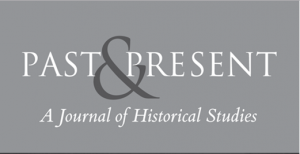by the Past & Present editorial team
Past & Present is delighted to announce the publication of it’s 15th Supplementary issue Mothering’s Many Labours edited by Prof. Sarah Knott (University of Indiana) and Prof. Emma Griffin (University of East Anglia).
The supplement questions and explores:
“What is the history of maternal labour: the range of mothering figures, the variety of activities, the social and economic importance? With the significant exception of Black women’s history, the history of mothering work has been relatively overlooked. Maternity has more typically been associated with emotion: a result of the long western history of ‘motherlove’ and of the influence of attachment theory, with its focus on the bonds of the mother–baby dyad. Mothering’s Many Labours addresses the topic by borrowing concepts and questions from feminist theory, sociology and economics and from an archive of feminist activism. Set aside the presumptive mother–baby dyad, and what emerges are many forms of dispersed mothering. Othermothering — the term originates with Black theorist Patricia Hill Collins — involved kin and community, while delegated mothering entailed commodified or coerced service of some kind. Maternal labour may long have been dismissed as unchanging or mundane, but the contributions here underline its social, cultural and economic importance and reposition it as a cornerstone of human societies. This labour, meanwhile, was strikingly various in its activities and demands. The contributors here draw attention to the wide range of physical, emotional and organizational work undertaken by those mothering, as well as to their role in archiving and remembering family histories. The volume seeks to push our boundaries of understanding beyond what happens inside the nuclear (and typically white, western) family. Authors consider how different forms of mothering operated — among for example the polygamous families of West Africa, the slave-holding households of the antebellum American South, the enslaved people of Caribbean plantations, andBritons of elite and ordinary classes. Undertaken by scholars of a variety of generations, this new research on maternal labour suggests an invigorated feminist history attentive to the past and to the changing circumstances of our own day. Both the variety of family forms in our current moment, and capitalism’s undervaluing of caregivers and caregiving, have deep historical roots.”

“Mothering’s Many Labours” cover artwork (cover art work and this graphic courtesy of Oxford University Press and used by permission, 2020)
The full supplement featuring contributions from: Prof. Sarah Knott, Prof. Diana Paton, Dr. Christine White, Prof. Joanna Bourke, Dr. Kate Gibson, Dr. R.J. Knight, Prof. Emma Griffin, Prof. Jane Hamlett, Dr. Clodagh Tait, Dr. Devon Golaszewski, Dr. Carla Pascoe Leahy, Prof. Helen McCarthy, Dr. Eve Worth and Dr. Laura Paterson can be read here.

